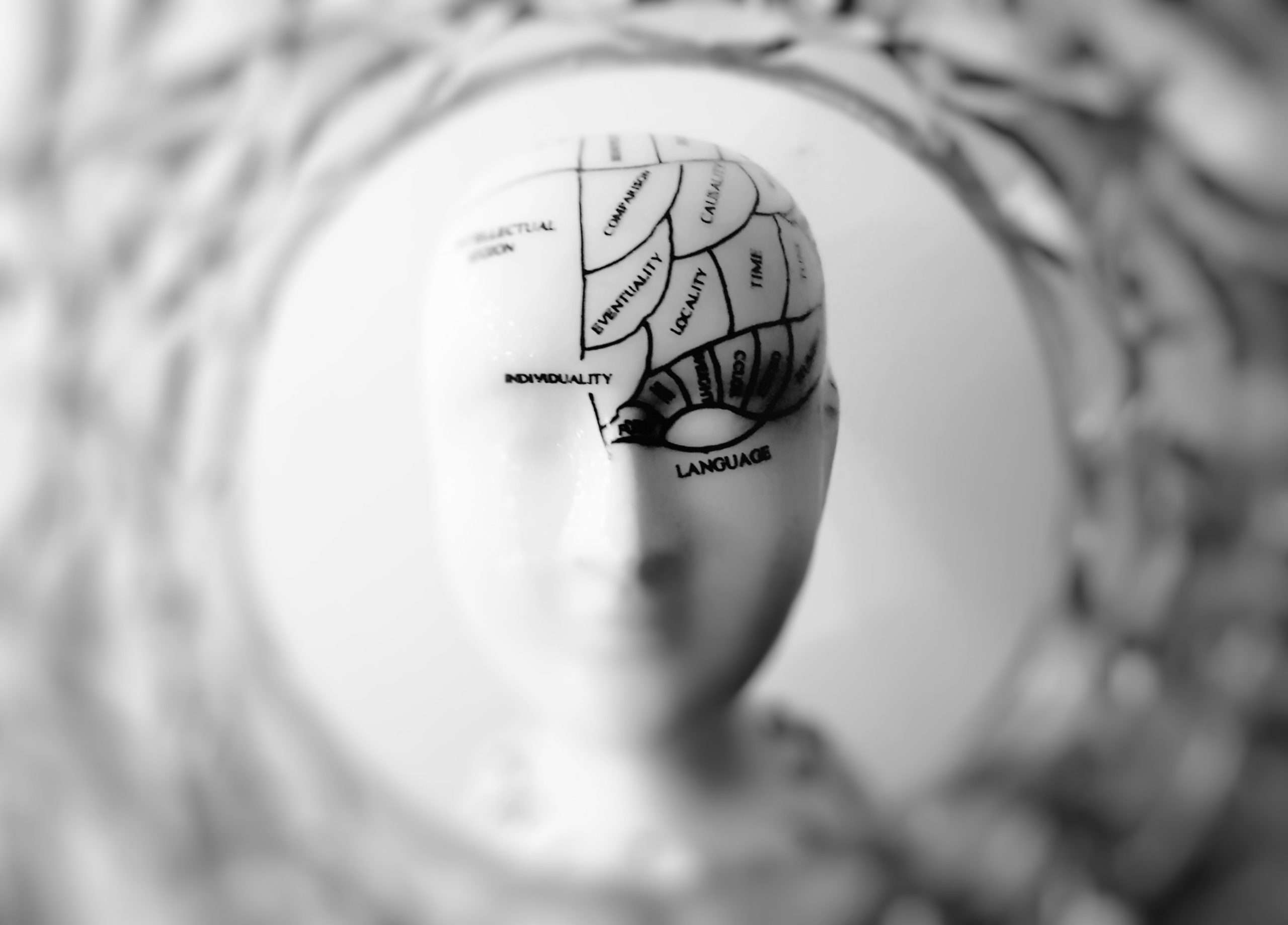All research in recent years has predicted that true success may not come only through academic excellence or a high IQ, but it’s our level of emotional intelligence that ultimately determines how successful we turn out as individuals in our adult lives.
Emotional intelligence(EI) has become quite a fancy term in the commercial world these days. Daniel Goleman, an internationally recognized psychologist and author of a New York Times best-selling book on emotional intelligence, popularized this term.
But the concept of emotional intelligence (EI) has been evolving for almost a century now. This concept was first known as “social intelligence” and was first studied by another psychologist Edward Thorndike in 1920. He defined social intelligence as “an ability to understand and manage men and women, boys and girls – to act wisely in human relationships”. He studied how people and animals learn, through decades of experiments and observation. And it was around the 1960s that the concepts of social intelligence were first applied to the commercial world.
What is Emotional Intelligence(EI)? In simple terms, EI is one’s ability to be aware of their own and others’ emotions and to know how to regulate them. For the purpose of awareness, and simplicity, I will share Daniel Goleman’s five key elements to emotional intelligence, as I found them very simple to understand. These are:
-
Self-Awareness
-
Self-Regulation
-
Motivation
-
Empathy
-
Social Skills
As a Psychiatrist, I have seen people fall short of some of these key elements to become emotionally intelligent. For example, clients who struggle with anxiety or social anxiety, face challenges in the social skills area. Even though they may have amazing awareness, they are unable to further perpetuate their skills, due to the inability to reach out, network, or even assert themselves.
Then there are people who struggle with depression, many of whom are greatly empathic, but they lack motivation due to their mental illness.
Those on the autism spectrum also struggle with their emotional intelligence due to the inability to process their own emotions, understand others’ emotions, as well regulate their own emotions. While they may come across as lacking empathy, that is not always the case.
But what I see as one of the biggest barriers to one’s EI, in both personal, and professional settings, be it in my clients or in the workforce in general, is; Trauma.
Our past traumatic experiences can have a substantial effect on our emotional intelligence or our ability to come across as emotionally intelligent people.
By trauma, I mean psychological trauma or any adverse experience which has had a drastic effect on a person’s thinking, processing, feeling, memory formation, personality, attitude, behaviors, and perception.
A 1998 study of 17,000 adults found that 1 in 10 people have experienced at least one adverse event in childhood. This includes psychological, physical, and sexual abuse, domestic violence, living with family members who were using substances, or struggled with mental illness, were suicidal or criminally involved (among many others). 25% of adults had experienced 2 or more adverse childhood events.
There have been countless studies conducted, on the effects of trauma on one’s level of EI, but I’d like to share with you what my observation has been, having treated thousands of clients with PTSD, or complex trauma-related symptoms in my two decades of practice as a psychiatrist. Besides my personal experience as well, of being born and raised in Kashmir, a conflict-ridden area, in the North of India, where decades of political unsettlement going on between the Indian government and Kashmiri natives, has left every single human being directly or indirectly traumatized by that warlike situation.
Trauma impacts many areas of our brain, but there are three areas where trauma leaves a lasting impact.
-
The amygdala: Our fight or flight area. This is an area that is the most hyperactive in folks who have experienced trauma.
-
The hippocampus: Also called the “time center”. It plays a key role in memory and learning. It saves our memories like files on a computer. During traumatic experiences, our bodies release the stress hormone cortisol, which can affect the hippocampus. This can lead to an inability to form important memories, which can in turn decrease our level of self-awareness.
-
The prefrontal cortex: An area that is responsible for regulating our emotions, judgment, learning, or processing emotions.
Trauma throws our bodies into acute stress mode and leads to increased production of cortisol, which has detrimental effects on our neurons. In fact, studies show that if babies are exposed to trauma in their intrauterine life, or in their mothers’ wombs, the maternal cortisol can affect their brains. This may be the first seed in the development of intergenerational trauma.
When we experience trauma, our brains think, perceive, and act differently than those who are not exposed to trauma. Due to a hyperactive amygdala, we are in a constant flight or fight mode. We may be hyper-vigilant, anxious, or stressed, leaving us preoccupied with our worries. We may come off as “too much in our heads” or even self-absorbed.
Being self-aware and aware of others’ emotions needs us to be attentive. For that our minds need to be relaxed and present. But when we have trauma, we may not have a full grasp on this skill. Thus, we stay ignorant of our own emotions as well as the emotions of others.
The hippocampus, as confirmed by countless MRI/FMRI studies, shows that people who are diagnosed with PTSD have a smaller hippocampus. This may lead to difficulties retrieving important information from the past, or developing healthy memories. Memories help us connect the dots, have a solid sense of identity, live an authentic life, and be aware of our strengths and our weaknesses. Imagine being unable to retrieve key files from a computer. I doubt it would be able to work effectively.
These gaps in our ability to retrieve important information from our past may lead to confusion or even anxiety. We may struggle with low self-esteem, identity crises, and thus it can prevent us from coming across as authentic and emotionally intelligent individuals. This is despite the resilience and strength built within an individual who has survived trauma.
Finally, our prefrontal cortex, which finishes developing after age 25, has a significant effect on our EI. Studies show that improved prefrontal cortex functioning is associated with higher EI levels. Individuals who are exposed to trauma or are diagnosed with PTSD, on the other hand, have a significantly less active prefrontal cortex. Cortisol that is released during trauma can also prevent the growth of nerve cells in this area, thus leading it not to develop freely.
So what can we do to build Emotional intelligence after a traumatic experience?
Traumatic experiences are mostly out of peoples’ hands. Many of us may have come from abusive backgrounds, which none of us signed up for. Many have witnessed natural disasters, accidents, early parental loss, parents’ substance abuse or mental illness, etc. None of this is anyone’s fault. So does this mean that because we have experienced trauma, we will always be less emotionally intelligent?
The answer is NO.
Trauma may affect our brains in a negative way, but trauma also leads to enormous growth, resilience, and empowerment, something called post-traumatic growth. As they say, what doesn’t kill us makes us stronger.
Our past traumatic experiences can be opportunities for us to grow and improve on our emotional intelligence. In fact, we may be able to see the world from a uniquely beautiful perspective after healing from these experiences. After all, no one is born with a high EI. It is something we have to work out on, like a muscle.
When we begin to process our traumas and start the healing process, we may find heightened levels of self-awareness, self-reflection, and emotion identification.
Through therapy, especially trauma focussed therapy, coaching, spirituality, mindfulness, meditation, volunteering, and many other self-help strategies, we can find our true purpose and emerge grounded, empathic, motivated, self-aware, and overall emotionally intelligent people.
Photo: Meo(Pexels.com)
References: https://www.teleosleaders.com/2018/2020/03/05/trauma-impacts-leadership-heal-it-with-emotional-intelligence/#_ftn1
Felitti, V., et al. (1998). Relationship of childhood abuse and household dysfunction to many of the leading causes of death in adults. The Adverse Childhood Experiences (ACE) Study. American Journal of Preventive Medicine, 14, 245-248
https://pubmed.ncbi.nlm.nih.gov/28629282/
Childhood trauma has been a serious public health problem and its long-term repercussions are widely studied. Childhood trauma can deregulate the stress-related biological pathways, incapacitating the individual to process these experiences and, consequently, producing a lasting impact in later stages of life. Exposure to adverse childhood experiences has been associated with poorer quality of life and a higher risk for harmful behaviors and illness. The emotional consequences of childhood trauma are inevitable, and the development of strategies for their coping and manage become decisive and urgent. In this chapter we will cover the most current perspectives on childhood trauma, its impact on later life stages and the resulting emotional process. Finally, it will be discussed how emotional intelligence can be a useful resource for coping with stressful situations resulting from traumatic experiences in childhood.
1. Introduction: the childhood trauma and its implication in the physical and mental health
Stress is generally defined as an emotional experience in response to a stressor event [1, 2]. Chronic stress can produce physiological, cognitive, and behavioral dysfunctions [1, 2]. A stressful event or stressor is both a physical stimulus as imaginary that can threaten homeostasis [2]. When a stressful event occurs early in life (also called early life stress or childhood trauma), it has powerful consequences gain greater importance, seen the vast physiological and psychological repercussions, which can perpetuate throughout the individual’s life [1, 2, 3, 4, 5]. Childhood trauma is configured in behaviors that pose a risk to the child’s physical or emotional well-being [1, 2, 3]. The main childhood trauma subtypes are physical, sexual and emotional abuse; physical and emotional neglect; witnessing violence against a family member; living with drug users or alcoholics and low socioeconomic status [5, 6].
Abuse is characterized by hostile attitudes towards children with the potential to cause physical and emotional damage [5, 6]. Neglect occurs due to the inability to supply basic needs such as clothing, food and health, besides the failure to offer emotional support to children [1, 2, 3]. Moreover, the exploration physical and emotional, with the possibility of resulting in damage to health, development or dignity of child, are also potentially stressful events [7]. Child adversity can include discrete events or circumstances that are beyond the control of children and are perceived as negative by them [8]. A large study evaluated the most common types of adverse childhood experiences (ACEs) in the United States [9]. Child abuse (emotional, physical or sexual), child neglect (emotional or physical) and domestic dysfunction (domestic violence, abuse of substances, parental absence or criminal activity) were the main events reported [9]. Other forms of child abuse include sudden and frequent house changes, death of a loved one, childhood illness life-threatening, serious accidents, prostitution, natural disasters, kidnapping, and terrorism [10].
Traumatic events experienced in childhood are extremely common. More than one third of the general population experience at least one event traumatic in childhood [11]. According to the World Health Organization (WHO) more than a quarter of adults worldwide reported having suffered physical abuse in childhood [7]. Twenty per cent of women and 5–10% of men reported having been sexually abused in the childhood [7]. The worldwide prevalence of child abuse and neglect ranges from 10–29% respectively and are strongly associated with a range of adverse results in adulthood [12]. In high-income countries, physical abuse ranges from 4–16%, and approximately 10% of children aged up to 15 years are neglected or suffer emotional abuse. Over 80% of these mistreatments are committed by parents or responsible [13]. In less developed countries like Brazil, 10% of children suffer some type of violence (representing 15 million of children). In addition, the majority of victims of rape are children, most of them girls between 5 and 10 years old [14].
Child abuse has been a global public health problem with long-term consequences for an individual, his family and society [10]. It is a global phenomenon that does not respect the limits of race, education, social class and religion [15]. Its occurrence can be both public and private, leading to the individual mistreated to serious physical, moral and emotional damages [15]. The psychological trauma experienced in childhood became the object of research in numerous fields of science, mainly in the psychology and psychiatry areas [15, 16]. Vast evidence indicates that childhood abuse exposure is strongly associated with a range of adverse outcomes in adulthood, contributing substantially to the global burden of numerous diseases and health risk behaviors [10]. For example, childhood trauma is predictive of obesity, inflammation, smoking, alcoholism, drug use, high-risk sexual behavior, among others [9, 13, 17]. Moreover, childhood trauma has also been associated to an increased risk of vascular disease, diabetes, and cancer [3, 9, 18, 19, 20, 21, 22, 23]. Individuals who experienced more than four childhood trauma subtypes (for example, physical, emotional, sexual abuse and neglect) had 11.3 times more likely to abuse illegal intravenous substances, 7.4 to be alcoholics, 3.2 times to have sexual relations with 5 or more partners, 2.2 to be chronic smokers and 1.6 to be obese in adulthood [9]. Childhood trauma also predict addicted behavior in individuals with illnesses. For example, a study showed that cancer patients who reported experiencing emotional neglect in childhood had 2.32 times more likely to be alcoholics at the time of cancer diagnosis and 2.15 times more likely to have extensive tumors [3].
The occurrence of childhood trauma is also correlated with higher risk for anxiety and mood disorder, psychosis, personality disorder, and depression [24, 25]. Child maltreatment worsens the prognosis of several psychiatric disorders and is predictive for the worst psychopathological outcome, such as younger age of symptom onset, more episodes of mood swings and psychotic symptoms, history of suicide attempt and greater number of hospitalizations [16, 24]. Having a history of childhood sexual abuse has been linked with the development of post-traumatic stress disorder (PTSD) after attempts at sexual abuse or rape in adulthood [24]. In young people, physical and sexual abuse are associated with crime and violence in relationships [25]. In addition, the young with a history of a higher occurrence of sexual abuse are more likely to commit rape [25]. An interesting study revealed that experiencing physical and emotional violence in childhood is a risk factor for reproducing abusive behaviors against children [26]. In addition to having a history of childhood trauma, other factors such as low education, low socioeconomic status, mental health problems and alcohol and drug abuse have been related to abusive behaviors [26]. These findings demonstrate that experiencing traumatic experiences in childhood predicts extremely negative outcomes throughout life.
Advertisement
2. Emotional processes resulting from childhood trauma
As previously mentioned, the occurrence of trauma in childhood activates stress-related pathways leading to a hyperactivation of the stressful response in adulthood. This mechanism mediates the various reflexes of trauma in childhood on physiological and behavioral dimensions. The outbreak of chronic stress induced by childhood trauma is directly related to the emotional processes derived from adverse experiences [9, 27]. A traumatic experience can cause anguish and suffering, leading the individual to a state of chronic emotional stress [27, 28, 29]. The emotional repercussions of trauma can be conscious or unconscious, since the individual perception will depend on the stimulus received from the environment since childhood [30, 31]. Beyond individual perception the occurrence and intensity of childhood trauma-derived emotional stress will depend on the exposure time and severity of traumatic experiences [11, 32]. Due the repercussions on the feelings and emotions, unbearable suffering is inevitable after exposure to severe trauma in childhood, such as physical, emotional, and sexual abuse [11, 32]. In addition, when the child is deprived of experiencing anguish and discomfort derived from natural adversities, such as denial of a toy, among others, there is a non-adaptation to stressful events [30]. Thus, it is possible that the child has greater difficulties in dealing with stressful situations in later stages of life [30, 31].
Sexual abuse in childhood can produce emotions and feelings of angry, deprotection, suffering, self-guilt and intense fear, which can extend for a lifetime [33, 34]. Victims of sexual abuse in childhood usually experience difficulties in interpersonal and loving relationships, such as relational and sexual intimacy problems, as well as having sex with several partners [33, 34]. In addition, in many cases, the victim feels intense guilt, believing that she or he is responsible for sexual abuse [34]. Physical abuse and neglect in childhood can exacerbate feelings of anger, aggressiveness, and emotional suffering later in adulthood [3, 35]. As a result of these emotional processes, it is common for victims of abuse to manifest violent behaviors, criminality, substance abuse and anxiety and depression symptoms [3, 35]. The emotional abuse and neglect experienced in childhood leads to feelings of rejection, guilt, inadequacy, and sadness, which can perpetuate for a long time [27, 35, 36]. It is also not uncommon for adults emotionally abused in childhood to display insecurity in solving problems and making decisions, as well as feeling easily offended or humiliated [35, 36].
The process of emotional dysregulation promoted by childhood trauma is mediated by neural systems and the inability to adapt to stressful events. Chronic exposure to traumatic events in childhood may impair the ability of the hypothalamic–pituitary–adrenal (HPA) axis in responding to stress in adulthood [37]. The limbic prefrontal system that encompasses the prefrontal cortex, amygdala and hippocampus, has a critical role for the individual’s mental health [38]. The interaction among these regions is essential in the regulation of emotions and stress [38]. Experiencing trauma in the childhood changes the volume of the hippocampus subfield, which depends on the severity of the traumatic event [38, 39]. For example, children exposed to severe trauma have a lower volume of left CA3 compared to children who experience lower occurrence of trauma [39]. These findings suggest that changes in the hippocampus induced by the childhood trauma may mediate deficits in emotional, cognitive and behavioral processes in later stages [39].
Emotional memory also has an underlying critical role in regulating the physiological and behavioral consequences of childhood trauma. For example, systemic levels of interleukin 1beta (IL-1β), a pro-inflammatory cytokine that acts on the hypothalamus, rise after intense traumatic experiences [40]. The emotion of anger is one of the main components associated with the increase in IL-1β levels when the adult remembers stressful events experienced in childhood [16]. Changes in the brain regions responsible for emotions modulate and directly affect the emotional response derived from childhood traumatic events [37, 38, 39]. Managing emotional processes can minimize the effects of childhood trauma, promoting adaptation or empowering the individual to face conflict situations. Emotional intelligence is an extremely useful resource for development skills to deal with emotions and stress resulting from childhood trauma.
Advertisement
3. Emotional intelligence as a strategy to deal with emotional stress resulting from childhood trauma
As previously described, childhood trauma has significant impact on the human emotional and physical health, predisposing harmful behaviors and illness. Experiencing traumatic events during childhood can incapacitate the individual to process unpleasant experiences and, consequently, can make a lasting negative impact in later life. The way in which the individuals interprets the traumatic experiences and how they manage their emotions depends on emotional support and the individual coping strategies. Evidence have shown that individuals who were mistreated during childhood had less empathy for the others’ distress compared to people without a history of trauma [40, 41]. The adaptive response to stress derived from traumatic experiences may be in the capacity to understand and manage stressful situations. This adaptation mechanism is called emotional intelligence [42, 43].
Emotional intelligence is one of the main skills to manage emotions and enable conflict coping, as well as making mental and emotional contents become conscious [42, 43]. Developing this ability can promote impulse control, self-confidence, self-motivation and self-compassion against of impacting and stressful situations [42, 43]. However, how can the individual develop this ability to control and manage emotions against of conflicting events? One of the individual resources is the development of emotional intelligence. Deeply understand the emotions produced through stimulus received from the environment since childhood, implies using emotional intelligence to access the pleasant experiences (positive memories) and those nasty (emotional traumas).
In our experience, we consider the emotional intelligence to be the main strategy to develop emotional competence to deal with the effects of stressful events that occurred in childhood. The individual can develop emotional intelligence, training themselves to deal and resolve conflicts arising from childhood trauma. Self-knowledge can be achieved during adolescence, adulthood and old age. Its effectiveness will depend on the individual’s willingness to get in touch with their emotional pain, beliefs and concepts that many times are the main components for the dullness and unconsciousness of emotional content derived from traumatic events.
Strategies for knowing and resolving emotional conflicts can be developed through specific instruments that assess occurrence and intensity of traumatic events experienced in childhood or adulthood. These instruments are based on self-responsive questionnaires or interviews focusing on stressful experiences [42, 43]. In addition, the clinical approach, such as psychotherapy, is a well-known evaluation method and used to treat the psychological consequences of trauma [44, 45]. Awareness and externalization of emotions and feelings derived from traumatic events can generate relief and consequently manage and control the response to stressful situations. This therapeutic approach allows the individual to identify and acknowledge unconscious content and its emotional impact, connecting life history (stimulus received from the environment) and sentimental manifestation. Thus, psychotherapy is an important instrument for developing emotional intelligence, promoting clarity and perception of psychological mechanisms resulting from traumatic experiences.
An interesting case we studied was of a woman who, through self-knowledge performed in psychotherapy, developed emotional intelligence to process and manage the consequences of a traumatic event experienced in childhood. At 12 years, Ana (fictitious name) was sexually abused by a stranger. This extremely traumatic event produced enormous emotional pain and, consequently, the experience was erased in her brain after a few months. Only at 21 years of age, after Ana had seen on the news the abuser being arrested for pedophilia, the memory of the traumatic event came to mind, triggering feelings of insecurity, fear, suffering and anger. According to the patient, these same emotional processes had been manifested in childhood after sexual abuse. Due to the exacerbation of these stressful emotions, Ana showed symptoms of depression and suicidal ideation. During the self-knowledge process developed by Ana, the perceptions of the repercussions of childhood trauma in the physiological, emotional, and social spheres became conscious for the first time. Along with these perceptions, the consciousness of the traumatic event and associated emotional process, enabled the management and coping with feelings arising. Thus, the symptoms of depression triggered after the memory of the trauma were minimized. This and other cases described in the literature [41, 42, 43, 46, 47] demonstrate that emotional intelligence regulates psychological content, promoting emotional clarity against of stressful situations [46, 47]. Therefore, emotional intelligence can be a protective resource for chronic stress and other emotional symptoms resulting from traumatic events experienced in childhood.
Advertisement
4. Conclusion
The occurrence of childhood trauma is extremely common in humans and occurs worldwide. The long-term consequences of childhood trauma have been a major health problem, in view of the enormous public spending on diseases and risky behaviors, which were previously mentioned. Moreover, develop strategies of self-knowledge to make conscious the emotional results of childhood trauma is decisive for controlling stress and its physical and behavioral effects. Emotional intelligence can be one of the main mechanisms in adulthood for identifying, managing, and adapting to conflict situations arising from traumatic childhood experiences.
Advertisement
Conflict of interest
The authors declare no conflict of interest.



